Don't miss our holiday offer - up to 50% OFF!
Upanib 15 mg (Upadacitinib)
Upanib 15 mg contains the active element Upadacitinib, which is an orally administered Janus kinase (JAK) asset for the treatment of a different range of autoimmune and seditious conditions. By picky inhibition of the JAK1 enzyme, Upadacitinib reduces the hyperactive vulnerable response that drives habitual inflammation in the conditions of rheumatoid arthritis, psoriatic arthritis, ankylosing spondylitis, ulcerative colitis, Crohn’s complaint, and atopic dermatitis.
This drug is for cases who haven’t had a sufficient response to conventional curatives or birth DMARDs. The 15 mg dose is a standard strength that’s specified for grown-ups in utmost of these diseases, though dosing may vary depending on the complaint and patient factors.
How Upanib Works
Autoimmune and seditious conditions are driven by hyperactive vulnerable signaling. The JAK- STAT pathway is at the mecca of the seditious signal transduction from cytokines to the cell nexus. In conditions like rheumatoid arthritis, this pathway is hyperactive, leading to habitual common inflammation, pain, and towel loss.
Upadacitinib is a picky asset of JAK1, one of the Janus kinase enzymes. By doing so, it shuts off the inordinate signaling that leads to inflammation, thereby reducing symptoms, stopping complaint progression, and perfecting quality of life. Its selectivity for JAK1 is also allowed
to minimize some of the adverse effects of lower specific JAK inhibition, although careful monitoring is still necessary.
Medical Uses of Upanib 15 mg
Upanib 15 mg may be used to treat the ensuing conditions
Rheumatoid Arthritis (RA): In adults with moderate to severe RA, methotrexate or other DMARDs may cause a timid reaction or dogmatism.
Psoriatic Arthritis (PsA) – To reduce common pain, swelling, and stiffness and enhance physical function.
Ankylosing Spondylitis (AS) and Non-radiographic Axial Spondyloarthritis (nr- axSpA) – For the treatment of reverse pain, stiffness, and mobility issues caused by inflammation of the chine.
Ulcerative Colitis (UC) – In grown-ups with relatively to oppressively active UC when other treatments have failed.
Crohn’s Disease (CD) – For cases with moderate to severe Crohn’s complaint who need an volition to conventional curatives.
Atopic Dermatitis (Eczema) – For severe to moderate symptoms not satisfactorily controlled by topical treatment or when similar treatment isn’t judicious.
Dosage and Administration
Usual Adult Dose: For the maturity of suggestions, 15 mg once a day, oral administration with or without food.
For Individual suggestions less than the usual boluses (e.g., 30 mg) may be used originally for some suggestions like ulcerative colitis before the cure is changed to conservation remedy, but dosing should follow the doctor’s guidance.
Missed Cure: If the cure is missed, it should be taken as soon as flashed back unless it’s near the time of the coming cure. Don’t double the cure.
The exact cure will depend on the complaint being treated, patient weight, and liver or order function. Regular monitoring with blood tests is recommended to ascertain any implicit side effects.
Potential Side Effects
Like all tradition medicines, Upanib 15 mg has side effects. Some are mild and temporary, while others must be treated by a doctor.
Common Side Effects
infections of the upper respiratory tract (cold, sinus infections)
Nausea
Headache
Fever
Cough
Acne
Serious Side Effects
Increased threat of serious infections (tuberculosis, herpes zoster, fungal infections)
Changes in blood count (low white or red blood cells)
Increases in liver enzymes
Cholesterol situations increased
Blood clots (pulmonary embolism, deep vein thrombosis)
Cardiovascular events in vulnerable individualities
Gastrointestinal perforations (however uncommon, may do)
Cases should be alert to signs of ongoing fever, casket pain, briefness of breath, severe abdominal pain, or unusual bruising/ bleeding and seek immediate medical help if they do.
Warnings and Precautions
Before starting Upanib 15 mg, cases must inform their healthcare provider of their entire medical history, especially if they have
A history of habitual or intermittent infections
Exposure to tuberculosis or previous TB infection
Liver complaint (including hepatitis B or C)
Heart complaint or cardiovascular event threat factors
History of blood clots
History of cancer
gestation or gestation/ breastfeeding plans
Gestation and Breastfeeding Upadacitinib isn’t recommended during gestation unless benefits overweigh pitfalls. Ladies of travail implicit need to use effective contraception during and for a period after treatment. Breastfeeding isn’t generally recommended when taking this drug.
Drug Interactions
Upanib may interact with:
Strong CYP3A4 impediments (i.e., ketoconazole, clarithromycin) – can raise situations of Upadacitinib
Strong CYP3A4 corrupters, such as carbamazepine and rifampin, may decrease efficacy.
Other immunosuppressive specifics – may increase threat for infection
Cases should give their doctor with a complete list of specifics, including untoward medicines and supplements, to avoid dangerous relations.
Monitoring During Treatment
Close monitoring is an important part of secure treatment with Upadacitinib. Tests may include
Complete blood count (CBC)
Liver function tests (LFTs)
Lipid profile
Tuberculosis webbing ahead and during treatment
Ongoing infection monitoring
Storage Instructions
Store between 20 and 25 °C (68 and 77 °F) at room temperature.
cover from humidity and direct sun
Out of reach of children
Don’t use beyond the expiry date mentioned on the pack
Key Benefits of Upanib 15 mg
Accessible Oral Administration – No need for injections
Targeted Action – picky inhibition of JAK1 for controlling inflammation
Broad Range of Uses – Useful in several autoimmune and seditious conditions
Symptom Relief & Disease Control – Relieves pain, swelling, and fatigue. Prevents farther damage
Conclusion
Upanib 15 mg (Upadacitinib) is a strong and picky oral drug for autoimmune and seditious conditions, furnishing a stopgap for those cases who have been unfit to find relief with conventional curatives. Though it can be of great benefit in reducing symptoms and perfecting quality of life, it also needs to be nearly covered by a healthcare professional to reduce pitfalls. Cases should precisely follow their prescriber’s instructions and have regular check- ups to safely and effectively use it.


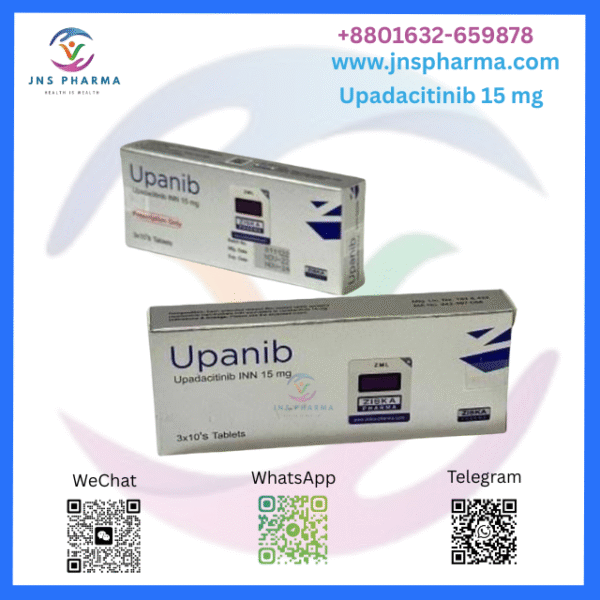
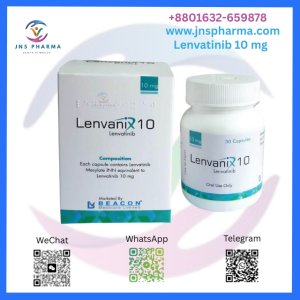
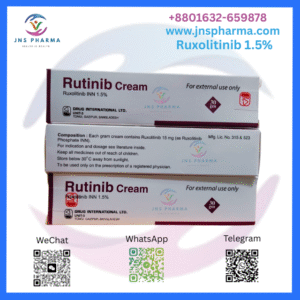
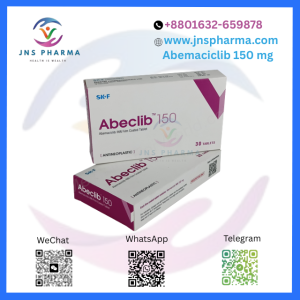
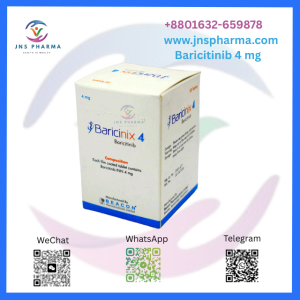
Reviews
There are no reviews yet.